
Find Help
More Items From Ergsy search
-

Does ketamine have long-term effects?
Relevance: 100%
-

What are the common side effects of ketamine?
Relevance: 74%
-

What are the known side effects of ketamine usage?
Relevance: 71%
-

How long do the effects of ketamine last?
Relevance: 70%
-
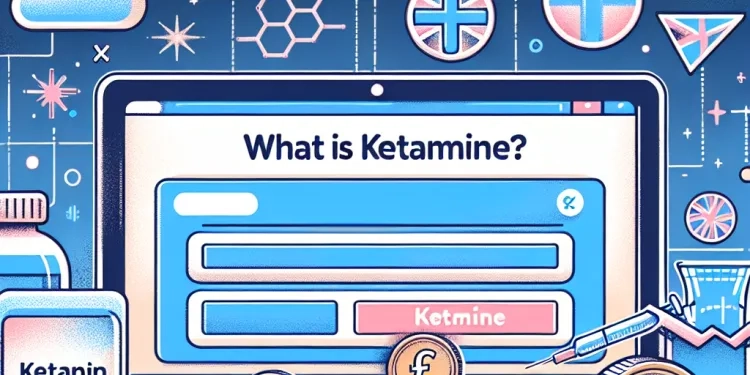
What is Ketamine?
Relevance: 64%
-

Is ketamine safe for everyone?
Relevance: 61%
-

What is the classification of ketamine?
Relevance: 61%
-

Is ketamine addictive?
Relevance: 60%
-
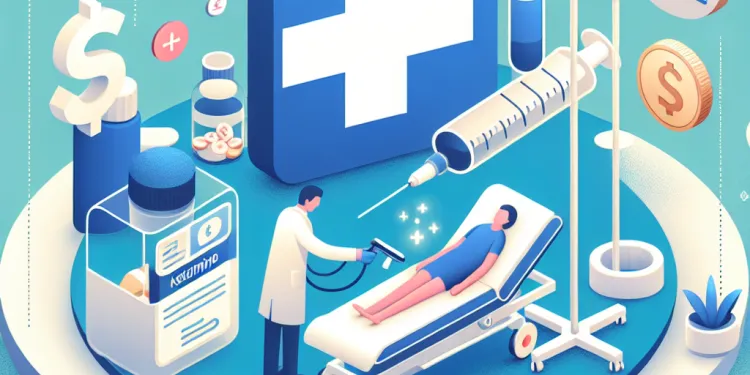
What conditions is ketamine used to treat?
Relevance: 58%
-
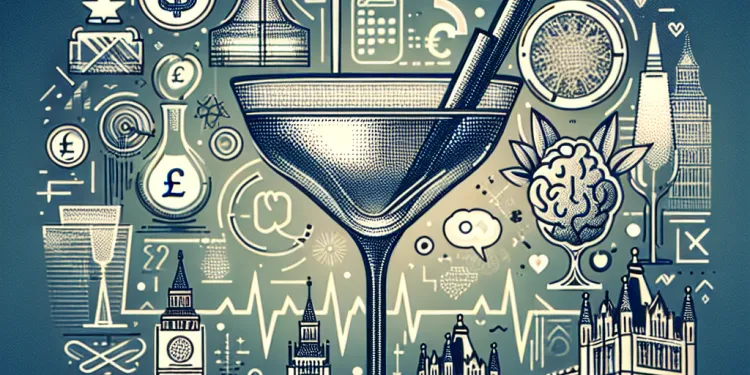
Can drink spiking cause long-term health effects?
Relevance: 57%
-
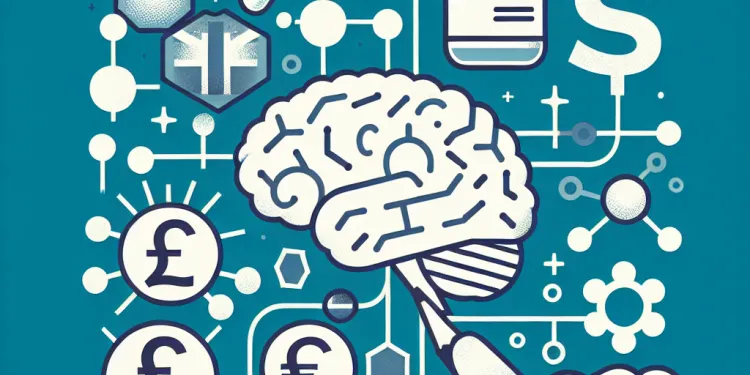
How does ketamine work?
Relevance: 57%
-

What is ketamine infusion therapy?
Relevance: 56%
-

What are the medical uses of ketamine?
Relevance: 56%
-
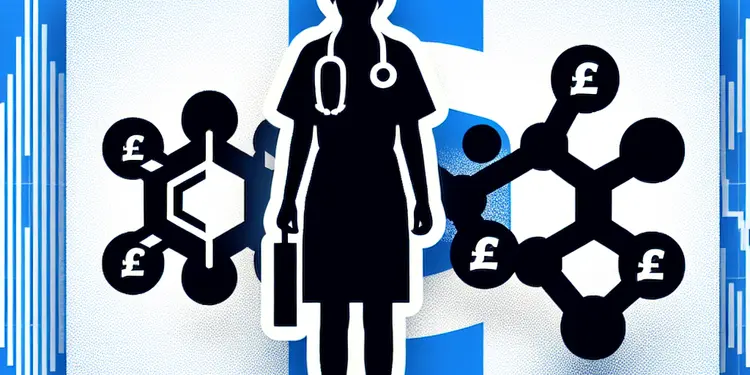
Can ketamine be prescribed for mental health conditions?
Relevance: 56%
-

Is ketamine legal?
Relevance: 56%
-

Are there any treatment programs for ketamine addiction?
Relevance: 55%
-

How is ketamine different from traditional antidepressants?
Relevance: 55%
-

What is the potential for addiction with ketamine?
Relevance: 54%
-
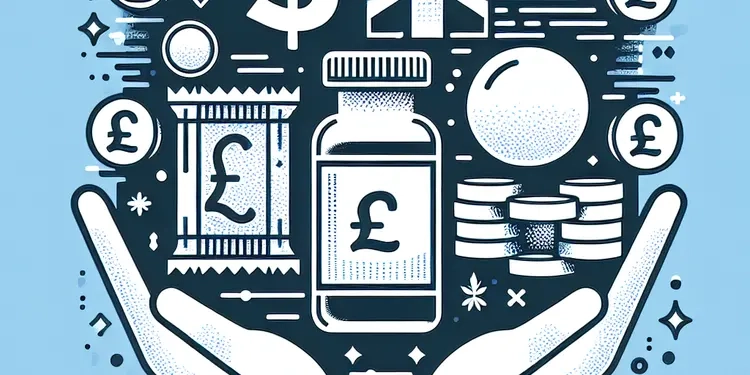
Is Ketamine a Class B drug?
Relevance: 54%
-

How is ketamine administered?
Relevance: 54%
-
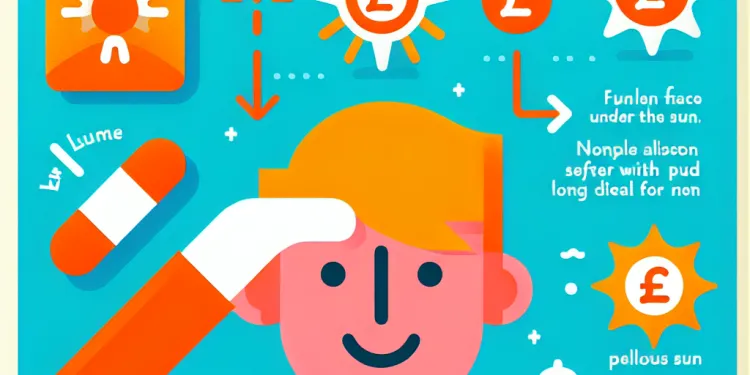
What are the long-term effects of sunburn?
Relevance: 54%
-

Is ketamine a controlled substance?
Relevance: 54%
-

What precautions are necessary when using ketamine?
Relevance: 54%
-

Are there any long-term effects of gonorrhoea?
Relevance: 53%
-

Is the production of ketamine regulated?
Relevance: 52%
-

Are there any legal uses for ketamine?
Relevance: 52%
-

Are there any long-term effects of Chikungunya infection?
Relevance: 52%
-

Are there any long-term effects of using Botox?
Relevance: 52%
-

Are there any long-term effects of using Ozempic?
Relevance: 52%
-

Can whiplash have long-term effects?
Relevance: 52%
-

Is it legal to import ketamine?
Relevance: 51%
-

How is ketamine used in veterinary medicine?
Relevance: 51%
-

What is the difference between ketamine and esketamine?
Relevance: 51%
-

What are the long-term effects of a heart attack?
Relevance: 51%
-

Are there any long-term side effects of the COVID jab?
Relevance: 50%
-

Can ketamine be used for recreational purposes legally?
Relevance: 50%
-

What is the penalty for supplying ketamine in the UK?
Relevance: 49%
-

Why was ketamine reclassified from Class C to Class B in the UK?
Relevance: 49%
-

What is the penalty for possessing ketamine in the UK?
Relevance: 49%
-

What is the legal status of ketamine in Canada?
Relevance: 48%
Understanding Ketamine
Ketamine is an anesthetic drug that has been used in medical settings since the 1960s. It is known for its rapid-acting effects and ability to induce dissociative anesthesia, making it useful in both humans and animals. Recently, ketamine has gained attention for its potential use in treating depression and other mental health disorders.
Short-term vs Long-term Effects
In the short term, ketamine is known to cause hallucinations and a sense of euphoria. These effects make it popular as a recreational drug, often referred to as "Special K." However, with its increasing medical application, understanding the long-term effects of ketamine has become crucial. While short-term effects are well-documented, the long-term effects are still being studied.
Potential Long-term Effects of Ketamine
Research into the long-term effects of ketamine use is still ongoing, but there are several areas of concern based on existing studies and anecdotal reports. One primary concern is potential damage to the urinary tract, often referred to as "ketamine bladder." This condition can cause symptoms like frequent urination, urgency, and even painful bladder syndrome.
Another area of concern is cognitive impacts. Regular ketamine use has been associated with memory problems and difficulties in concentration. Although the evidence is not conclusive, these cognitive issues can affect daily functioning and quality of life.
Mental health is another significant area where long-term effects are being explored. While ketamine shows promise as a treatment for depression, chronic use outside of medical supervision may lead to psychological dependence or exacerbate certain mental health conditions. Users may experience mood swings, anxiety, or depression when not using the drug.
Current Research and Evidence
Research is being conducted globally, including in the UK, to understand the nuances of ketamine's impact over extended periods. Most studies are currently limited to animal models or short-term observational data in humans. The findings suggest a need for caution and further investigation before conclusively determining the long-term safety of ketamine, particularly for non-medical use.
Guidance for Users
For those considering ketamine for medical purposes, it is crucial to use it under the guidance of a healthcare professional. Those using ketamine recreationally should be aware of the potential risks and seek support if they experience adverse effects. Healthcare authorities and organizations provide resources and support for individuals struggling with substance use or mental health issues.
Conclusion
While ketamine has promising potential in treating certain conditions, its long-term effects remain a concern that requires further investigation. Ensuring informed use under professional supervision can mitigate some risks, but ongoing research will be vital in understanding the full scope of ketamine's impact on the body and mind over time.
Understanding Ketamine
Ketamine is a medicine that helps people and animals not feel pain during surgeries. It has been used since the 1960s. Ketamine is very fast at making pain go away. People are now looking at ketamine to see if it can help with depression and other mental health problems.
Short-term vs Long-term Effects
When people use ketamine for a short time, it can make them see things that are not real (hallucinations) and feel very happy (euphoria). Because of these effects, some people use ketamine for fun and call it "Special K." But now, doctors want to understand what happens to people who use ketamine for a long time. We know the short-term effects, but scientists are still learning about the long-term effects.
Potential Long-term Effects of Ketamine
Scientists are still studying what happens when people use ketamine for a long time. Some studies and stories tell us there might be problems. One problem could be "ketamine bladder," which means trouble with the bladder. People with this problem might need to go to the bathroom a lot, quickly, or feel pain.
Another worry is that using ketamine a lot might make it hard to remember things or stay focused. While scientists are not sure yet, these problems can make everyday life harder.
Mental health is also important. While ketamine might help with depression, using it without a doctor can cause problems like feeling very sad or anxious when not using it. It might lead to wanting to use ketamine more and more.
Current Research and Evidence
Scientists all over the world are trying to learn more about what ketamine does over a long time. Right now, they look at animals or short-term human stories. These studies say we need to be careful with ketamine. More research is needed to know if it is safe, especially if not used by a doctor.
Guidance for Users
If you think about using ketamine for medical reasons, talk to a doctor. They can guide you safely. If using ketamine for fun, know it can be risky. Get help if you have problems. There are groups that help people with drug use problems or mental health issues.
Conclusion
Ketamine might help with some health problems, but we still need to know more about using it for a long time. Always use ketamine with a doctor's help to be safer. Scientists will keep studying to find out how ketamine affects the body and mind in the long run.
Frequently Asked Questions
What are the long-term effects of ketamine use?
Long-term effects of ketamine use may include memory issues, cognitive impairments, bladder problems, and potential addiction.
Can ketamine cause cognitive impairments?
Yes, long-term use of ketamine can lead to cognitive impairments, affecting memory, attention, and executive function.
Does ketamine use affect bladder health?
Chronic ketamine use can lead to a condition called ketamine bladder syndrome, which includes symptoms like urinary urgency, frequency, and pain.
Is ketamine addictive?
Ketamine has the potential to be addictive, especially with long-term or recreational use, due to its psychoactive effects and abuse potential.
Can long-term ketamine use affect mental health?
Prolonged ketamine use can lead to mental health issues, including depression, anxiety, and psychotic symptoms.
Does long-term ketamine use affect learning abilities?
Yes, long-term ketamine use can impair learning abilities by affecting memory and cognitive processes.
Are there any neurological effects of long-term ketamine use?
Chronic ketamine use can lead to neurological changes, affecting brain structure and function, potentially leading to cognitive deficits.
How does ketamine affect the liver over long-term use?
Long-term ketamine use can potentially cause liver damage or dysfunction, though this is less common compared to other organ effects.
Are there long-term effects of ketamine on kidney function?
Chronic use of ketamine can lead to kidney issues, primarily due to its effects on the bladder, which can indirectly affect kidney function.
Can ketamine use lead to tolerance?
Regular use of ketamine can lead to tolerance, requiring higher doses to achieve the same effects, which can increase the risk of adverse outcomes.
Is there a risk of developing psychological dependence on ketamine?
Yes, there is a risk of developing psychological dependence on ketamine, particularly with frequent use.
Does long-term ketamine use have an impact on fertility?
Research is limited, but potential impacts on fertility have been suggested with long-term ketamine use, though more studies are needed.
Can ketamine cause long-term changes in mood?
Long-term use of ketamine can cause changes in mood, including increased depression or anxiety in some individuals.
What effects does long-term ketamine use have on social relationships?
Chronic use can affect social relationships due to changes in behavior, mental health, and priorities, often leading to isolation.
Are there any cardiovascular risks associated with long-term ketamine use?
While ketamine is known for raising blood pressure and causing heart rate changes acutely, long-term effects on the cardiovascular system are less clear.
Can ketamine affect vision long-term?
There is limited evidence suggesting visual disturbances with chronic ketamine use, but more research is needed to fully understand this effect.
Does ketamine affect bone health with long-term use?
There is little evidence directly linking ketamine to bone health issues, but indirect effects through lifestyle changes (e.g., poor diet) may occur.
Can ketamine use result in long-term hearing problems?
Long-term hearing problems are not commonly associated with ketamine use and more research is needed to establish any direct links.
Is there a risk of hallucinations with long-term ketamine use?
Chronic use increases the risk of experiencing hallucinations and other perceptual distortions, which can become more pronounced over time.
Are the long-term effects of ketamine reversible?
Some effects, like cognitive impairments, may improve after cessation, but others, such as bladder damage, may not be fully reversible.
What happens if someone uses ketamine for a long time?
Using ketamine for a long time can cause problems. These problems might be trouble remembering things, thinking issues, bladder problems, and it can be addictive.
Can ketamine affect how we think?
Ketamine is a medicine. Some people use it for fun, but it can be dangerous.
Ketamine can make it hard to think clearly. This means it can affect your brain and how you understand things.
If you or someone you know is using ketamine, it helps to talk to a doctor or adult you trust.
Sometimes, learning tools and techniques, like using simple words or pictures, can help you understand better.
Yes, using ketamine for a long time can make it hard to think well. It can affect your memory, focus, and decision-making.
It might help to use tools like reminder apps, calendars, or lists to stay organized. You can also try doing brain exercises like puzzles or simple games to practice your thinking skills.
Can using ketamine harm your bladder?
Using a lot of ketamine for a long time can hurt your bladder. This might make you feel like you need to pee a lot, or it's hard to wait, and it might hurt when you pee.
Can you get addicted to ketamine?
Ketamine is a drug. Some people might start to use it too much.
If you use ketamine a lot, you might feel like you need it. This is called being addicted.
If you want to stop using ketamine, a doctor or therapist can help. Talking to a trusted adult or joining a support group can also help.
Ketamine can make people want to use it too much. This is because it changes how we feel and can be misused, especially if taken for fun or for a long time.
Can using ketamine for a long time change your mental health?
Ketamine is a drug. Some people might feel different if they use it for a long time. It can change how they feel in their mind.
It is important to talk to a doctor if you have questions or feel worried. They can help you understand more.
If reading is hard, using bigger letters helps. Reading one sentence at a time can also make it easier.
Using ketamine for a long time can make your mental health worse. It can cause sadness, worry, and seeing or hearing things that aren't real.
Does using ketamine for a long time change how well you can learn?
Yes, using ketamine for a long time can make learning harder. It can change how you remember things and think.
Does using ketamine for a long time affect the brain?
When people use ketamine for a long time, it might change how the brain works. It could make it hard to remember things and learn new stuff.
If you're worried about this, talk to a doctor. They can give advice and help you understand more.
Using charts or drawing pictures can help make information easier to understand.
Using ketamine for a long time can change your brain. It can affect how your brain looks and works. This might make it harder to think clearly.
What happens to the liver if someone uses ketamine for a long time?
Using ketamine for a long time might hurt your liver. But, it does not happen as often as other body problems.
Does ketamine hurt kidneys if used for a long time?
Using ketamine a lot can hurt your kidneys. This is mainly because it affects the bladder, which can also hurt the kidneys.
Does using ketamine a lot make your body get used to it?
Using ketamine a lot can make your body get used to it. Then, you might need to take more to feel the same way. This can be dangerous.
Can using ketamine make you feel like you need it?
Yes, using ketamine a lot can make people want to keep using it. This can be hard to stop.
Does using ketamine for a long time affect having babies?
Long-term means using something for a long time.
Ketamine is a drug some people use.
Fertility means how easy it is to have babies.
If you have questions about this, ask a doctor or nurse.
Talking to a doctor can help you understand more.
We do not know a lot yet, but using ketamine for a long time might affect having babies. More studies need to be done to understand this better.
Can Ketamine Change How You Feel for a Long Time?
Ketamine is a medicine. Some people take it to feel better or for other reasons.
We need to be careful because it might change how we feel for a long time.
If you have questions, it’s good to ask a doctor or someone who can help.
Make sure to talk to someone you trust if you have worries.
You can use picture cards to show how you feel. They can help you explain your feelings.
Using ketamine for a long time can change how you feel. It might make some people feel more sad or worried.
How does using ketamine for a long time change friendships and family ties?
Using something too much can change how you act and feel. It can make it hard to keep friends and family close. This can make you feel alone.
Does using ketamine for a long time hurt your heart?
Ketamine can make your blood pressure go up and change your heartbeat for a short time. We don't know much about what it does to the heart and blood vessels over a long time.
Can Ketamine Change How We See Forever?
Ketamine is a drug. It can change how we see things. Can this last a long time?
Let’s use simple words to understand this. If we use ketamine a lot, it might change our eyes. This could make seeing things hard.
Here are some ways to make reading easier:
- Use a finger or ruler to keep your place while reading.
- Read slowly. Take your time.
- Ask someone for help if you don’t understand.
Using ketamine for a long time might cause problems with seeing things. But scientists need to study more to know for sure.
Does using ketamine for a long time hurt your bones?
We don't know much about how ketamine affects bones. But if someone uses ketamine a lot, they might change how they live. They might eat less healthy food, and this could affect their bones.
Can using ketamine cause hearing problems for a long time?
When people use ketamine, it might hurt their ears. This can make it hard to hear well.
For help with reading or understanding, you can use:
- Audio books - to listen instead of read
- Text-to-speech tools - to read out loud for you
- Pictures or videos - to see examples
Using ketamine might not often cause hearing problems that last a long time. We need more studies to find out if there is a direct connection.
Can using ketamine for a long time make you see things that aren’t real?
Some people who use ketamine for a long time might see things that aren’t there. These are called hallucinations. Hallucinations can be scary or confusing.
If you are worried, talk to someone you trust, like a doctor or a family member. They can help you understand more.
Here are some tools that can help:
- Talking to a doctor: They know about medicine and can give good advice.
- Support groups: These are people who understand and can share their experiences.
Using something a lot for a long time can make you see or hear things that aren't really there. This can get worse as time goes on.
Can the effects of using ketamine for a long time go away?
Some things can get better when you stop, like brain fog or trouble thinking. But other things, like when your bladder is hurt, might not get all better.
Useful Links
This website offers general information and is not a substitute for professional advice.
Always seek guidance from qualified professionals.
If you have any medical concerns or need urgent help, contact a healthcare professional or emergency services immediately.
Some of this content was generated with AI assistance. We’ve done our best to keep it accurate, helpful, and human-friendly.
- Ergsy carfully checks the information in the videos we provide here.
- Videos shown by Youtube after a video has completed, have NOT been reviewed by ERGSY.
- To view, click the arrow in centre of video.
- Most of the videos you find here will have subtitles and/or closed captions available.
- You may need to turn these on, and choose your preferred language.
- Go to the video you'd like to watch.
- If closed captions (CC) are available, settings will be visible on the bottom right of the video player.
- To turn on Captions, click settings .
- To turn off Captions, click settings again.
More Items From Ergsy search
-

Does ketamine have long-term effects?
Relevance: 100%
-

What are the common side effects of ketamine?
Relevance: 74%
-

What are the known side effects of ketamine usage?
Relevance: 71%
-

How long do the effects of ketamine last?
Relevance: 70%
-

What is Ketamine?
Relevance: 64%
-

Is ketamine safe for everyone?
Relevance: 61%
-

What is the classification of ketamine?
Relevance: 61%
-

Is ketamine addictive?
Relevance: 60%
-

What conditions is ketamine used to treat?
Relevance: 58%
-

Can drink spiking cause long-term health effects?
Relevance: 57%
-

How does ketamine work?
Relevance: 57%
-

What is ketamine infusion therapy?
Relevance: 56%
-

What are the medical uses of ketamine?
Relevance: 56%
-

Can ketamine be prescribed for mental health conditions?
Relevance: 56%
-

Is ketamine legal?
Relevance: 56%
-

Are there any treatment programs for ketamine addiction?
Relevance: 55%
-

How is ketamine different from traditional antidepressants?
Relevance: 55%
-

What is the potential for addiction with ketamine?
Relevance: 54%
-

Is Ketamine a Class B drug?
Relevance: 54%
-

How is ketamine administered?
Relevance: 54%
-

What are the long-term effects of sunburn?
Relevance: 54%
-

Is ketamine a controlled substance?
Relevance: 54%
-

What precautions are necessary when using ketamine?
Relevance: 54%
-

Are there any long-term effects of gonorrhoea?
Relevance: 53%
-

Is the production of ketamine regulated?
Relevance: 52%
-

Are there any legal uses for ketamine?
Relevance: 52%
-

Are there any long-term effects of Chikungunya infection?
Relevance: 52%
-

Are there any long-term effects of using Botox?
Relevance: 52%
-

Are there any long-term effects of using Ozempic?
Relevance: 52%
-

Can whiplash have long-term effects?
Relevance: 52%
-

Is it legal to import ketamine?
Relevance: 51%
-

How is ketamine used in veterinary medicine?
Relevance: 51%
-

What is the difference between ketamine and esketamine?
Relevance: 51%
-

What are the long-term effects of a heart attack?
Relevance: 51%
-

Are there any long-term side effects of the COVID jab?
Relevance: 50%
-

Can ketamine be used for recreational purposes legally?
Relevance: 50%
-

What is the penalty for supplying ketamine in the UK?
Relevance: 49%
-

Why was ketamine reclassified from Class C to Class B in the UK?
Relevance: 49%
-

What is the penalty for possessing ketamine in the UK?
Relevance: 49%
-

What is the legal status of ketamine in Canada?
Relevance: 48%


